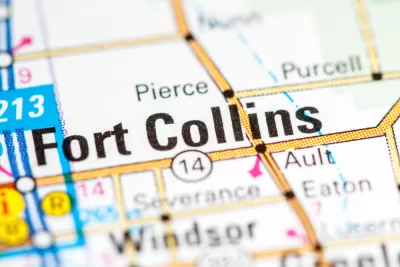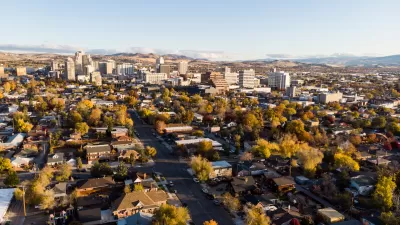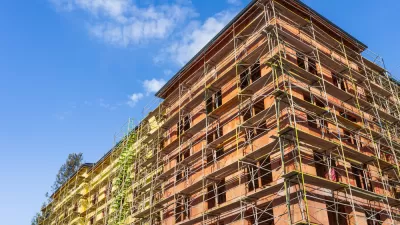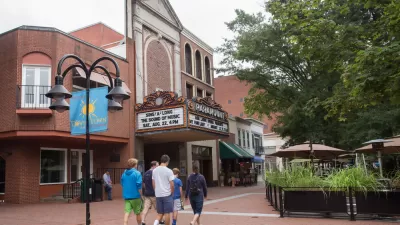It’s back to the drawing board for a development code update in Fort Collins, Colorado, after residents revolted against zoning reforms that include by-right development of accessory dwelling units.

Fort Collins, Colorado is working toward a new land use code, months after repealing a new code approved in November due to a public petition opposing the changes. Molly Bohannon has been following the developing story throughout the twists and turns of the start-and-stop process.
The city of Fort Collins updated its land use code after 15 months of work on November 1, 2022, adopting the first change to the regulations governing development in the city since 1997. By January 2023, the city had rescinded that approval in response to a citizen-led petition. The council voted 5-2 to approve the land use code in November. The council voted 7-0 to repeal the code in January.
According to an article by Bohannon published in December, the former land use codes was intended “to increase housing capacity, improve affordability, have a more diverse housing stock in the city, and make the code easier to understand and housing development reviews more predictable.” The former land use code allowed the construction of accessory dwelling units in all residential zones, for example.
The opponents leading the petition drive, Preserve Fort Collins, cited a lack of public engagement and concern over the city’s charactering opposing the code update, according to the same article. “Public opposition to the changes stemmed largely from the concern that they would diminish the city’s quality by allowing more dense housing types in historically single-family neighborhoods and that the changes were formed without adequate public engagement,” writes Bohannon in the same article.
Fast forward to the present day, and Bohannon reports that city staff are getting ready to start to work on revisions to the code update, starting with a new round of community engagement. “Staff estimated the cost of this round of engagement to be about $150,000 and said they hope to be able to come back to council in August, but they don't want to rush it,” reports Bohannon in the source article linked below.
FULL STORY: Here are your chances to weigh in on the future of Fort Collins' land use code

Planetizen Federal Action Tracker
A weekly monitor of how Trump’s orders and actions are impacting planners and planning in America.

Congressman Proposes Bill to Rename DC Metro “Trump Train”
The Make Autorail Great Again Act would withhold federal funding to the system until the Washington Metropolitan Area Transit Authority (WMATA), rebrands as the Washington Metropolitan Authority for Greater Access (WMAGA).

The Simple Legislative Tool Transforming Vacant Downtowns
In California, Michigan and Georgia, an easy win is bringing dollars — and delight — back to city centers.

Albuquerque’s Microtransit: A Planner’s Answer to Food Access Gaps
New microtransit vans in Albuquerque aim to close food access gaps by linking low-income areas to grocery stores, cutting travel times by 30 percent and offering planners a scalable model for equity-focused transit.

This City Will Pay You to Meet Your Neighbors
A North Kansas City grant program offers up to $400 for residents to throw neighborhood block parties.

Commentary: Our Silence Will Not Protect Us
Keeping our heads down and our language inoffensive is not the right response to the times we’re in. Solidarity and courage is.
Urban Design for Planners 1: Software Tools
This six-course series explores essential urban design concepts using open source software and equips planners with the tools they need to participate fully in the urban design process.
Planning for Universal Design
Learn the tools for implementing Universal Design in planning regulations.
Smith Gee Studio
City of Charlotte
City of Camden Redevelopment Agency
City of Astoria
Transportation Research & Education Center (TREC) at Portland State University
US High Speed Rail Association
City of Camden Redevelopment Agency
Municipality of Princeton (NJ)





























